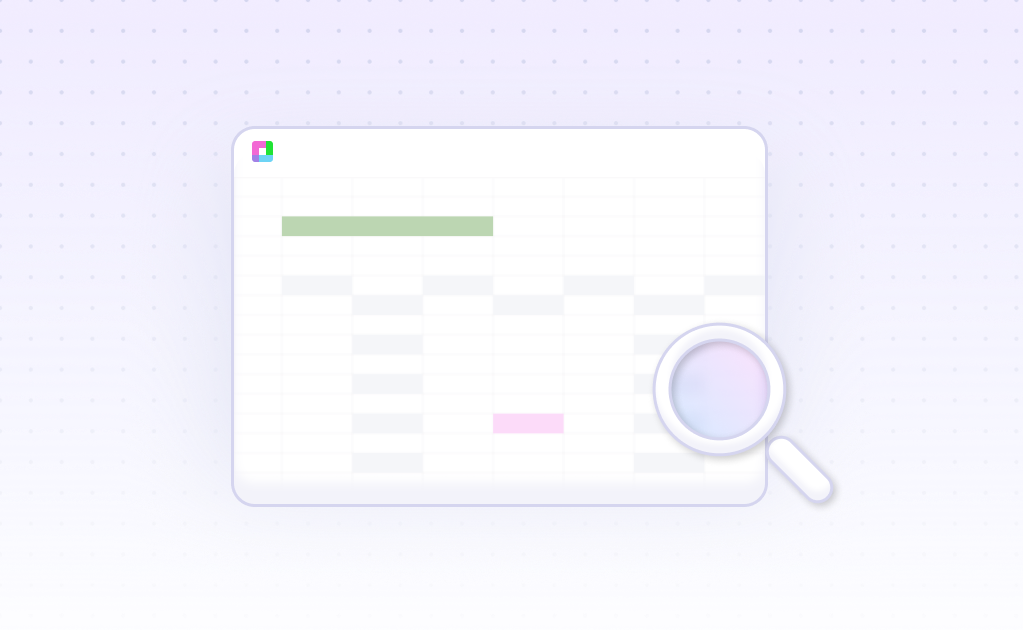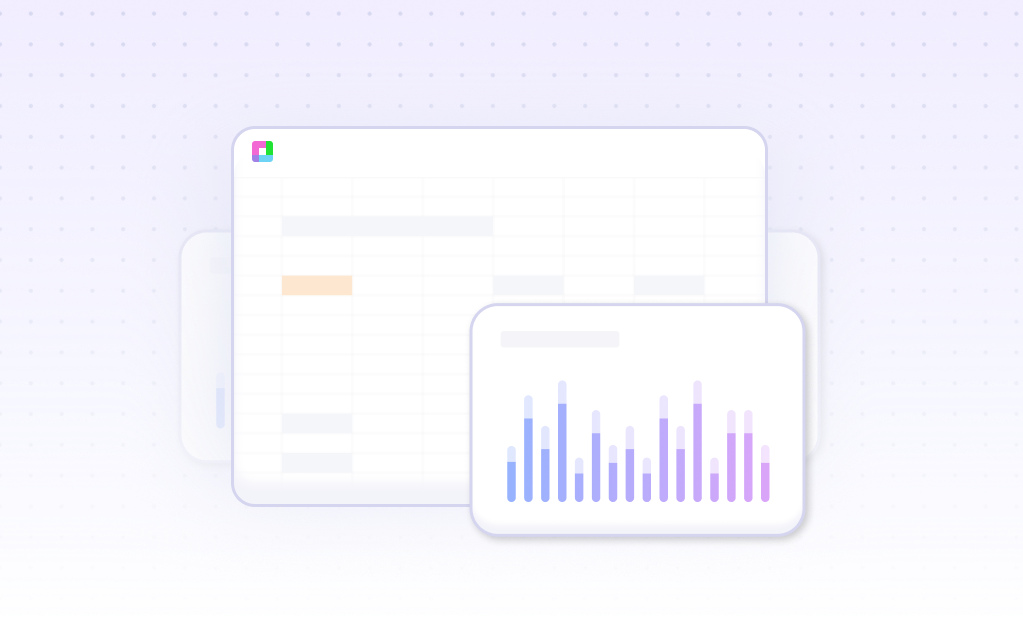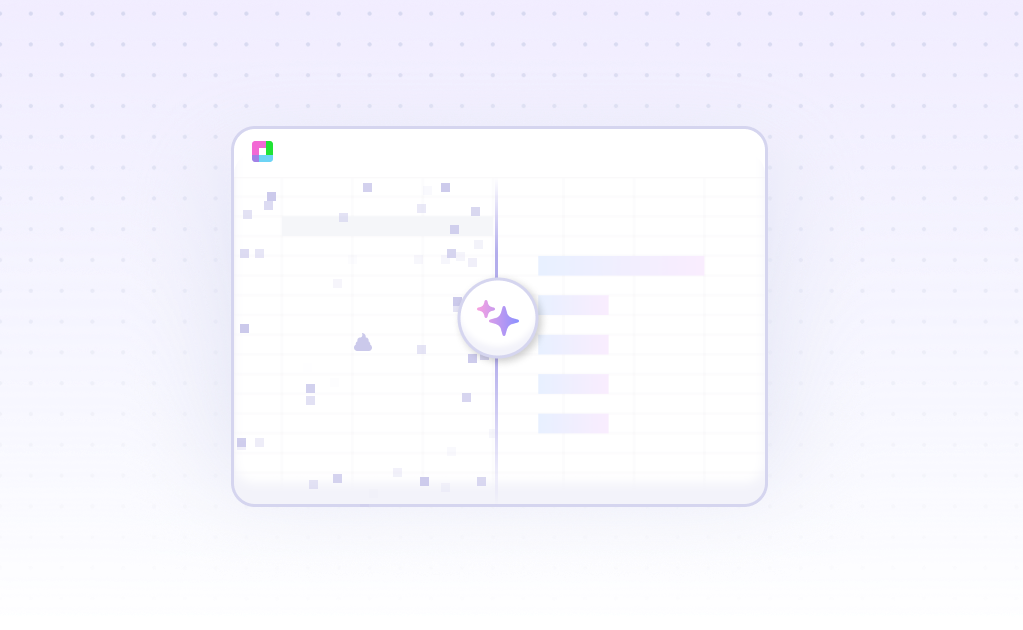
Medical research generates vast amounts of data that hold the key to breakthrough discoveries. Whether you're analyzing patient outcomes, clinical trial results, or epidemiological studies, the right statistical analysis can make the difference between meaningful insights and missed opportunities.
Sourcetable transforms how healthcare professionals approach medical statistics. Instead of wrestling with complex formulas or switching between multiple tools, you can perform sophisticated analyses using natural language commands and AI-powered insights.
Why Healthcare Professionals Choose Sourcetable
Discover the key benefits
AI-Powered Statistical Analysis
Run complex statistical tests like t-tests, ANOVA, and regression analysis using simple conversational commands. No need to memorize formulas or syntax.
HIPAA-Compliant Data Handling
Secure analysis environment designed for sensitive medical data with enterprise-grade security and compliance features.
Real-Time Collaboration
Share findings with research teams instantly. Multiple researchers can work on the same analysis simultaneously with version control.
Automated Reporting
Generate publication-ready statistical reports and visualizations automatically. Export to academic formats with proper citations.
Import From Any System
Connect directly to EMR systems, laboratory databases, and clinical trial management platforms. Support for CSV, Excel, and database imports.
Statistical Validation
Built-in checks for statistical assumptions, power analysis, and effect size calculations to ensure robust research findings.
Medical Research Use Cases
Discover how Sourcetable accelerates statistical analysis across different types of medical research
Clinical Trial Analysis
Analyze patient enrollment data, treatment efficacy, adverse events, and endpoint measurements. Perform survival analysis, time-to-event studies, and interim analysis with confidence intervals and p-value adjustments.
Epidemiological Studies
Conduct population health research with odds ratios, relative risk calculations, and multivariate regression models. Analyze disease prevalence, incidence rates, and risk factor associations across demographic groups.
Biomarker Research
Evaluate diagnostic accuracy with ROC curves, sensitivity/specificity analysis, and predictive modeling. Compare biomarker performance across different patient populations and validation cohorts.
Quality Improvement Projects
Track healthcare metrics like readmission rates, infection control, and patient satisfaction scores. Implement statistical process control and identify significant variations in care quality.
Pharmaceutical Research
Analyze drug efficacy data, dose-response relationships, and pharmacokinetic parameters. Perform crossover study analysis, bioequivalence testing, and regulatory submission statistics.
Health Economics Research
Calculate cost-effectiveness ratios, budget impact models, and health utility scores. Analyze insurance claims data and healthcare resource utilization patterns with advanced econometric methods.
From Data to Discovery in Minutes
See how medical researchers use Sourcetable to accelerate their statistical analysis workflow
Import Your Research Data
Upload data from clinical databases, laboratory systems, or spreadsheets. Sourcetable automatically detects data types and suggests appropriate statistical tests based on your variables.
Ask Questions in Plain English
Instead of writing complex formulas, simply ask: 'Compare patient outcomes between treatment groups' or 'Test if age correlates with recovery time.' The AI understands medical research context.
Get Instant Statistical Results
Receive comprehensive analysis including test statistics, p-values, confidence intervals, and effect sizes. All results include interpretation guidance and assumptions checking.
Generate Research Reports
Create publication-ready tables, figures, and statistical summaries. Export to academic formats or integrate directly into manuscript preparation software.
Medical Statistics in Action
Clinical Trial Efficacy Analysis
A cardiovascular research team needed to analyze outcomes from a 500-patient clinical trial comparing two blood pressure medications. Using Sourcetable, they simply asked: "Compare systolic blood pressure reduction between Drug A and Drug B groups, accounting for baseline differences."
Within seconds, Sourcetable provided:
- ANCOVA results with baseline adjustment
- Effect size calculations (Cohen's d = 0.47)
- 95% confidence intervals for treatment differences
- Power analysis confirmation (Power = 0.89)
- Assumption checking for normality and homogeneity
Survival Analysis for Cancer Research
An oncology research center analyzed time-to-progression data for 300 patients across three treatment protocols. The traditional approach would have required specialized software and weeks of programming.
With Sourcetable, the researcher asked: "Perform survival analysis comparing progression-free survival across treatment groups, adjusting for age and stage."
The AI delivered:
- Kaplan-Meier survival curves with 95% confidence bands
- Cox proportional hazards model results
- Hazard ratios with confidence intervals
- Log-rank test for group comparisons
- Risk tables and median survival times
Diagnostic Accuracy Study
A pathology department evaluated a new diagnostic test against the gold standard using 200 patient samples. They needed comprehensive diagnostic accuracy metrics for their validation study.
The query: "Analyze diagnostic performance of new test versus gold standard, including ROC analysis."
Sourcetable automatically generated:
- ROC curve with AUC = 0.87 (95% CI: 0.82-0.92)
- Optimal cutoff point using Youden index
- Sensitivity: 84%, Specificity: 79%
- Positive and negative predictive values
- Likelihood ratios and diagnostic odds ratio
Comprehensive Statistical Testing Suite
Sourcetable supports the full range of statistical methods commonly used in medical research, all accessible through natural language commands:
Descriptive Statistics
- Summary statistics with confidence intervals
- Distribution analysis and normality testing
- Outlier detection and data quality assessment
- Missing data pattern analysis
Comparative Analysis
- Independent and paired t-tests
- Mann-Whitney U and Wilcoxon signed-rank tests
- One-way and factorial ANOVA
- Kruskal-Wallis and Friedman tests
- Chi-square and Fisher's exact tests
Regression Modeling
- Linear and multiple regression
- Logistic and multinomial regression
- Cox proportional hazards models
- Mixed-effects models for repeated measures
- Poisson regression for count data
Advanced Methods
- Survival and time-to-event analysis
- ROC analysis and diagnostic accuracy
- Meta-analysis and forest plots
- Propensity score matching
- Bayesian analysis methods
Frequently Asked Questions
Is Sourcetable suitable for regulatory submissions?
Yes, Sourcetable generates analysis output that meets regulatory standards for FDA, EMA, and other health authorities. All statistical procedures include detailed methodology documentation, assumption checking, and audit trails required for regulatory submissions.
How does Sourcetable ensure data privacy for medical research?
Sourcetable implements enterprise-grade security with end-to-end encryption, role-based access controls, and HIPAA compliance features. Data processing occurs in secure cloud environments with regular security audits and compliance certifications.
Can I collaborate with other researchers on the same analysis?
Absolutely. Sourcetable supports real-time collaboration with version control, comment threads, and shared workspaces. Multiple researchers can work on the same project simultaneously while maintaining data integrity and audit trails.
What file formats can I import for medical data analysis?
Sourcetable accepts Excel, CSV, SAS, SPSS, R data files, and can connect directly to clinical databases, REDCap, and EMR systems. The platform automatically handles common medical data formats and coding systems.
Does Sourcetable validate statistical assumptions automatically?
Yes, Sourcetable automatically checks statistical assumptions for each test and provides warnings or alternative recommendations when assumptions are violated. This includes normality testing, homogeneity checks, and sample size adequacy assessments.
Can I export results for publication in medical journals?
Sourcetable generates publication-ready tables and figures that comply with major medical journal formatting requirements. You can export to Word, LaTeX, or directly copy formatted tables and high-resolution graphics.
How accurate are the AI-generated statistical interpretations?
Sourcetable's AI is trained on medical literature and statistical best practices. However, we always recommend that qualified statisticians or researchers review interpretations, especially for critical research decisions or regulatory submissions.
Is there support for multi-site clinical trial analysis?
Yes, Sourcetable handles complex study designs including multi-center trials, crossover studies, and adaptive designs. The platform can account for site effects, stratification, and other design complexities in the statistical analysis.
Frequently Asked Questions
If your question is not covered here, you can contact our team.
Contact Us




